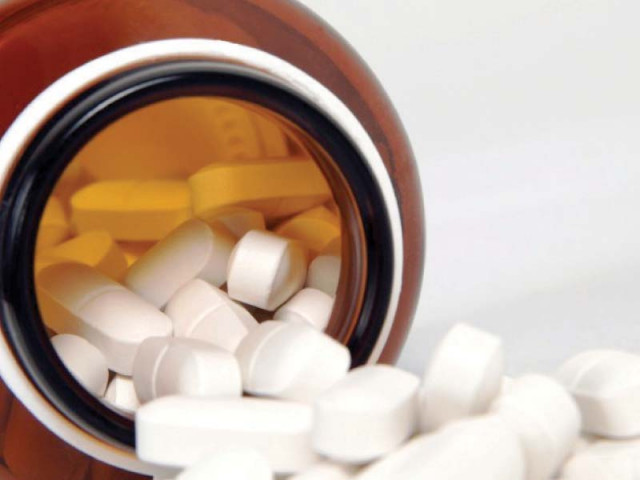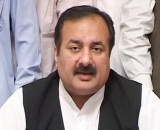Office of Fair Trade launches probe
Alleges that drugs are imported under concessionary regime, then sent to other countries

Pakistan offers a concessionary taxation regime to pharmaceutical companies aimed at facilitating provisions of life-saving drug. PHOTO: FILE
The Office of Fair Trade has launched a probe into alleged smuggling of life-saving drugs from Pakistan, which pharmaceutical companies are manufacturing by importing raw materials at extremely low duties and taxes and then smuggling them abroad.
“The Office of Fair Trade is gathering information about five medicine brands that are manufacturing various kinds of life-saving drugs,” said Dr Shahzad Ansar, the Member Fair Trade and Advocacy of Competition Commission of Pakistan (CCP) on Thursday.
Unforeseen casualty: Shortage of life-saving drugs feared in the coming weeks
He was speaking during a press conference called to unveil the CCP’s plans to launch an advocacy campaign in order to create awareness about the Competition Act of Pakistan. In a countrywide drive, the CCP would reach to businesses and their representative bodies to make them aware about benefits of ensuring competition and fair play.
“The Office of Fair Trade has apprehensions that the medicines manufactured by importing raw materials by enjoying concessionary taxes and duties are smuggled into Afghanistan and Bangladesh,” said Ansar.
Pakistan offers a concessionary taxation regime to pharmaceutical companies aimed at facilitating provisions of life-saving drugs at affordable rates. However, instead of providing relief to the domestic consumers, these manufacturers are, prima facie, minting money by smuggling medicines to other countries.
Saving lives: Crackdown against spurious drugs underway
Ansar said his department had not yet taken the case to CCP, but as soon as he gets hold of irrefutable evidence, the CCP would be requested to launch an inquiry and serve notices to these manufacturers.
The office of Fair Trade was trying to track down the imports of raw materials, the manufactured drugs and the quantity sold in the domestic market. Ansar said that his department would also look into the dairy sector business practices to determine whether packaged milk producers were deceiving the consumers or not.
Sugar sector
CCP Chairperson Vadiyya Khalil has said the anti-trust watchdog might also undertake a study to review how the prices of sugarcane and sugar are determined by the industry; referring to a recent statement made by Pakistan Sugar Mills Association (PSMA) Chairman Iskandar Khan, in which he requested the CCP to intervene in the sugarcane price market.
World's first anti-ageing drug could extend human life up to 120
Khan’s statement was contrary to the stance that the PSMA has so far undertaken in a court case. The PSMA has challenged the existence of the anti-trust watchdog after the CCP imposed the maximum penalty on the sugar cartel. Khan confirmed that he sought the CCP intervention.
According to 2011 provisional inquiry report of the CCP, the PSMA - a group of 81 sugar mills - has been involved in preventing, restricting and reducing competition in the sugar industry.
Under the Competition Act of 2010, the CCP decided to impose a maximum penalty of Rs75 million or 10% of the annual revenues of a company. However, the CCP has been restrained by courts from issuing its final order after the PSMA obtained a stay order.
Quality check: ‘Don’t confuse substandard drugs with fake products’
The courts allowed the CCP to conclude proceedings but restrained it from issuing a final order. Khalil said that the Lahore High Court was hearing the petitions filed by various parties against the constitutionality of the CCP.
Under the current system, the government fixes the price of sugarcane by keeping in mind the cost of production. However, the PSMA has taken a stance that sugarcane price should be linked with the recovery rate.
The PSMA on Thursday met with Commerce Minister and demanded that the government should allow it to export 500,000 tons of sugar and give Rs13 per kilogramme subsidy as the prices in the international market were lower than the domestic prices.
Published in The Express Tribune, December 4th, 2015.
Like Business on Facebook, follow @TribuneBiz on Twitter to stay informed and join in the conversation.



















COMMENTS
Comments are moderated and generally will be posted if they are on-topic and not abusive.
For more information, please see our Comments FAQ